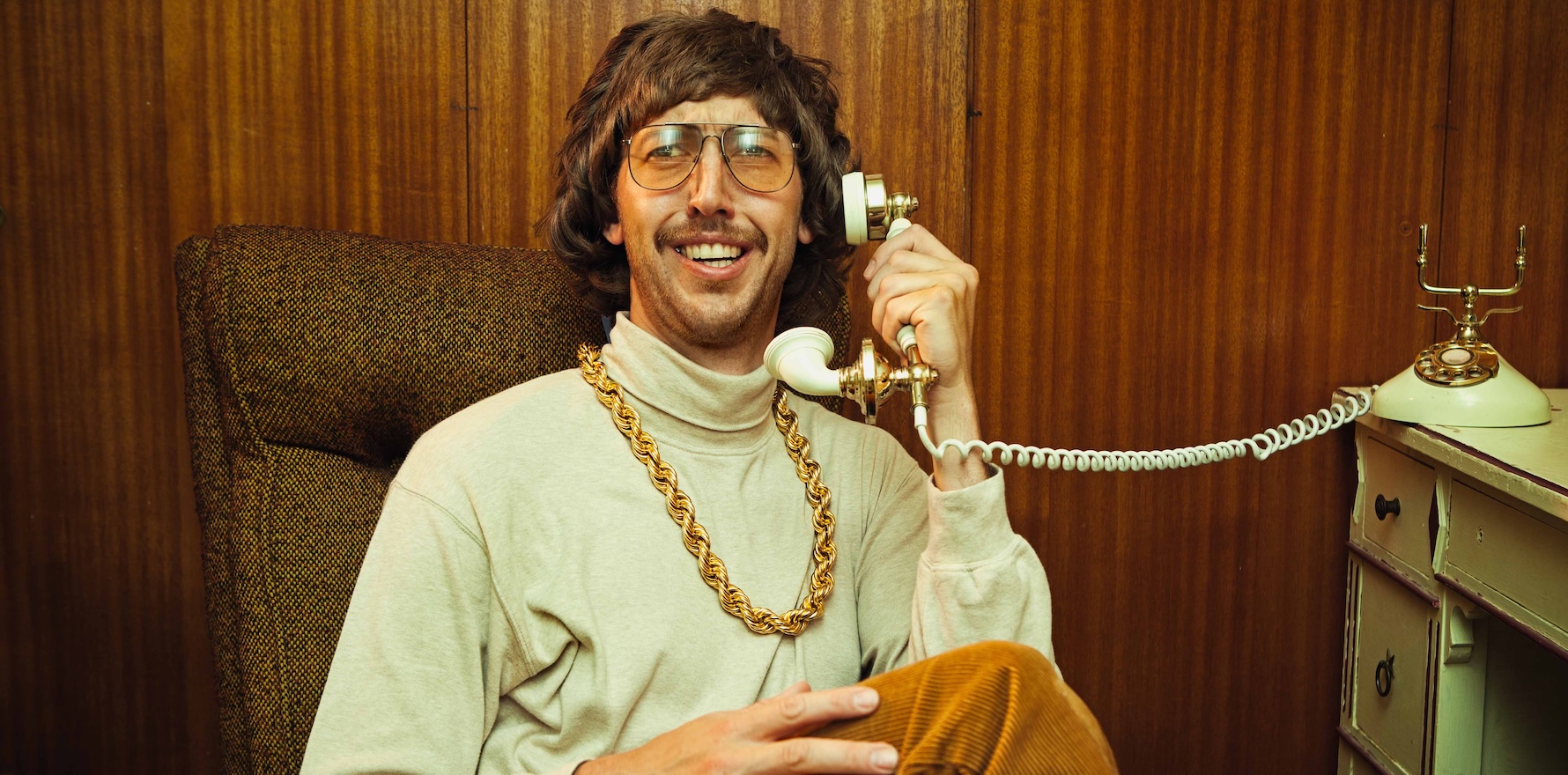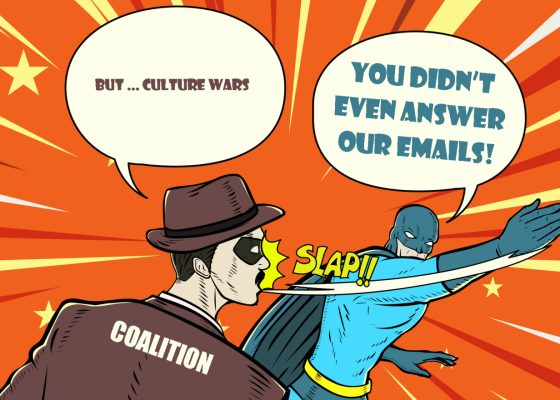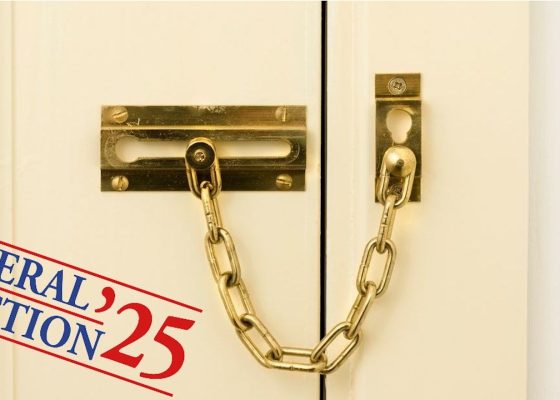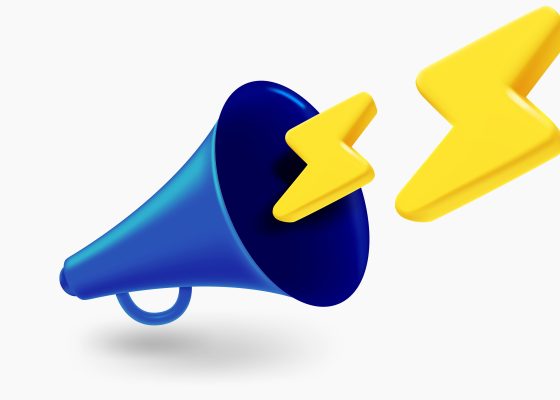An election promise of $204m for 1800 Medicare might easily have more long-term system impact than the $8.5bn promised for bulk billing incentives. Here’s why.
As far as what is really going on with last weekend’s $204 million 1800 Medicare announcement no one is allowed to tell you.
Not the government, which gave pretty scant detail on what the announcement really meant, not the Department of Health and Aged Care, which isn’t able to speak in caretaker mode but which would be behind the idea, and surprisingly, not even Healthdirect, which learnt about the new policy the way the rest of us did, in Sunday morning’s breaking election media stories.
The Coalition, in its now familiar style, quickly moved to match the promise, which is interesting, because with so little detail of what is behind the move, almost certainly they would have no idea really what they were committing themselves too. This is probably how the $8.5 billion bulk-billing match came about as well and might give you some sense of how on top of healthcare the Coalition seems to be.
While no one can be certain of what is going on in this pre-election environment, the policy will very likely be based on proposals that have been put to DoHAC by Healthdirect, talks back and forth between the two organisations over the last year and general chatter across state and federal health agencies around the obvious utility of a national and centralised single patient front door for all clinical enquiries outside of calling 000 in an emergency.
Until the weekend everyone had been referring to the idea and the possibilities as 222 – a neat new brand for a centralised triage phone and digital front door for every patient in the country.
But in terms of marketing and branding, 1800 Medicare is as good and quite feasibly, better (just more numbers to remember being the only downside).
Medicare is a universally recognised and very positive brand in the minds of the nation so it’s not surprising that the government has a branding strategy putting it at the centre of almost every new initiative for moving the dial on system change and reform, whether Medicare is actually directly funding an initiative or not.
Medicare (core), MyMedicare, Medicare UCCs, Medicare Mental Health Clinics, and now 1800 Medicare – a national after-hours triage service providing access for everyone to some service via an 1800 hotline or online.
Brand Medicare is expanding well beyond its traditional core which has been fee-for-service funding of health provision.
Medicare Mental Health Clinics are just rebranded Head to Health clinics which are not funded through Medicare at all, but through block funds to PHNs, which are funded by DoHAC directly.
UCCs are substantively block funded to provide their service alongside taking Medicare bulk-billing money.
Now 1800 Medicare is a wholly block-funded free service for patients, especially in the instance that the triage process ends up with Healthdirect sending a patient to their own virtual GP service.
It looks like the announcement on the weekend may have been a classic election campaigning artifact: someone in Labor Central was monitoring sentiment and, some time late last week, sent up a flare saying the weekend would be a good time to add a Medicare sugar hit to the campaign.
Then someone went to the sugar hit policy board and picked the 1800 Medicare card out of the lineup.
It feels like, if not via this partially random process, 1800 Medicare or 222 was coming regardless: it’s just so obvious, sensible and potentially game changing for the system, for so little effort and money in relative terms, to ignore much longer.
Feasibly the weekend sugar hit has short-circuited a lot of ongoing state and federal government negotiation on just how to align nationally and get the idea going.
It was a cheeky thing for Labor to pull out. Essentially, they are rebranding Healthdirect, which is an agency funded by every state and territory and the federal government, as Medicare, which is wholly a federal government thing.
Oh well.
Related
Hopefully the states are going to see the genius in settling on such a highly loved and recognised brand, even though it isn’t theirs, to take the Healthdirect service on an upwards trajectory, because with a brand like this and everyone behind it, chances are that 1800 Medicare is the start of a massive amount of system transformation as far as patient access to services is concerned, and efficiency.
Before the day was out on the announcement of 1800 Medicare we had some expected and usual objections to the idea: mainly, it’s just a rebranding exercise which won’t make a difference — $204 million is a lot for new business cards, was a common LinkedIn refrain – and an oldy but a goldie, it will take GP jobs and disintermediate primary care, particularly after hours.
To the first objection, even if this was just money for rebranding, it would be pretty ingenious rebranding. But it’s not just for rebranding.
Healthdirect is going to get a significant increase in volume of incoming calls from patients (that’s the main deal about great branding by the way … more customers). When the UK’s NHS introduced a similar national patient triage concept with a single brand, volume to the existing service increased by about 300%.
Healthdirect would fall over if it spent all its new $204 million (presumably $50 million per annum over the four years of budget estimates) on new business cards alone and it got a 300% volume increase in calls. It would also be dangerous.
Although we can’t be 100% sure this funding and policy is based on proposals put to DoHAC by Healthdirect, if it largely is, then a lot of the funding is going to be spent on scaling capacity for the triage service – in design, in implementing new AI to optimise efficiency and data, in new online interfaces, and, ultimately in more workforce to manage the coalface of the service.
The second complaint, that the service will take jobs from GPs and an extension to that complaint, that it will disintermediate the relationship between a patient and their normal GP, doesn’t really stack up.
Anyone who has studied the triage service will know that it’s agnostic as to what service provider it’s directing someone too, other than, most appropriate and accessible in the most appropriate timeframe.
After hours the complaint, which tends to be come mostly from the AMA and the RACGP, is even less in play.
Seventy-one percent of calls to Healthdirect are received when other primary care services are not available – typically nights and weekends – according to Healthdirect data.
There just aren’t many after-hours services around other than UCCs if you live near one, and only to 9pm, and then ED, if someone is in that category.
Again, if you study the Healthdirect triage protocol, part of it is to assess if a patient can wait up to 24 hours to see a GP. It then looks for the local GP for that patient and then even tries to make the appointment with that local GP.
Only if the triage person and associated algorithms assess someone doesn’t need ED but would do well to talk to a GP after hours, and they can’t find any other outside service, will Healthdirect refer a patient to a telehealth call from their bank of 24-hour virtual GPs. And in that call Healthdirect has protocols to loop in the patient’s normal GP with what happened, if they have one.
Here’s some other data people possibly haven’t got their heads around:
- In FY24, 40.5% of callers were recommended to see a GP (preferably their regular GP);
- 70% of calls connected to the virtual GP service from Healthdirect are between 6pm-8am;
- 79% of Healthdirect helpline callers who had planned to go to an emergency department or call 000, and who received a virtual GP consultation, avoided a visit to an ED in FY2;
You can get more data here.
In that one last resort instance, Healthdirect is block funded to provide this service for free to a patient, and yes, that patient won’t be seeing either their normal GP or a 9-5 bricks and mortar GP, at least that night.
But is anyone really going to put an argument that this is a service that threatens traditional GP viability and patient continuity of care in some way?
In fairness, the AMA and RACGP aren’t going to town here, just warning it could happen, but we think they are focusing potentially more on the monetary needs of their members than the needs of an after-hours patient.
Not saying your average bricks and mortar GP practice doesn’t need help in every way here. They do.
To which both parties vying for government in this election would say I guess, hey look at the bulk-billing incentive $8.5 billion scoreboard.
We aren’t going into this policy in detail here, suffice to say most mixed billing practices are saying they can’t afford to stop mixed billing, so that $8.5 billion is very likely to be only half spent.
That helps, but not in the way that GPs and patients really need help, which is probably in shifting the funding to longer consults like the AMA and the RACGP have recommended.
The $8.5 billion is another story but it does put in play the idea that with this simple $204 million the government puts into Healthdirect may end up transforming the system far more effectively in terms of patient access and services than the $8.5 billion.
You can imagine that if the $204 million works as it is meant to, Healthdirect will become a truly national service, and if it does, it will likely get bigger and bigger and need more money.
If in the end you can call a single number at any time (but particularly after hours) and be provided with the right advice about what to do and even be connected directly to a provider, and that service is truly national and universal, it’s definitely game-changing in terms of utility for patients and system efficiency.
One aspect of what Healthdirect is doing which you can easily imagine could be transformative is that they are getting into AI for organisation of IP and for helping with triage. That’s a big trend around the world so it’s good that Healthdirect are pushing it (see here).
In terms of organisation of data and IP, think about what the organisation is going to be able to collect and deploy across all points of the system if they truly end up a heavily used national service – patients from every postcode providing detail every day on what they need and when.
This will be data the Australian Institute of Health and Welfare, DoHAC and our hospital networks and PHNs would surely die for in trying to assess and design future system needs.
We called Healthdirect to get a better angle on what was going on, and of course, they weren’t at liberty to say more about the announcement because it’s the last week of the election campaign.
But they were able to talk about what they put to DoHAC in the last year and what they think could happen.
A lot of what they said encompasses much of what has been written and suggested above but some of what could happen is surprising and new.
For instance, did anyone know that because Healthdirect has essentially struggled with branding of its triage service over the years – it only gets $200 million per year and that is nowhere near enough to nationally brand its service effectively so everyone gets it – it has huge holes in its disadvantaged patient communities user base, particularly in cultural and linguistically diverse communities.
It’s obvious when you think about it.
Medicare is a cut-through brand with CALD communities, this despite many in these groups not having a Medicare card.
Healthdirect CEO Bettina McMahon thinks the rebranding could significantly move the dial on penetration of the service to both these communities, and to lots of others around the country, that still hardly know it exists.
“We know that some parts of the community – such as newly arrived migrants – don’t use our services as much as others in the community,” Ms McMahon told Health Services Daily.
“Coupled with their lack of understanding of the Australian health system more broadly, they could benefit from contacting Healthdirect for health information and advice. More promotion along with simplified access could improve our impact in these communities with advice on how to self care, assistance to form a relationship with a regular GP, or connection with more urgent care.”
Essentially, 1800 Medicare is formalising the centralisation of a national phone and online patient triage service beyond 000 to one, which is run and funded, serendipitously perhaps, by all states and the commonwealth as one entity.
Speaking of serendipity, there could hardly be a better time in history for this to have all come together than a time when AI is rolling big-time for transforming healthcare if you have the data, and Healthdirect is, so far, all over this trend and the potential.
It might have been the last-minute idea of a junior political apparatchik for a weekend election sugar hit on policy, and at this stage is only going to cost us $204 million, but it could easily end up being one of the most transformative healthcare policies in terms of bang for system transformation buck of all time.
Well done young apparatchik.




